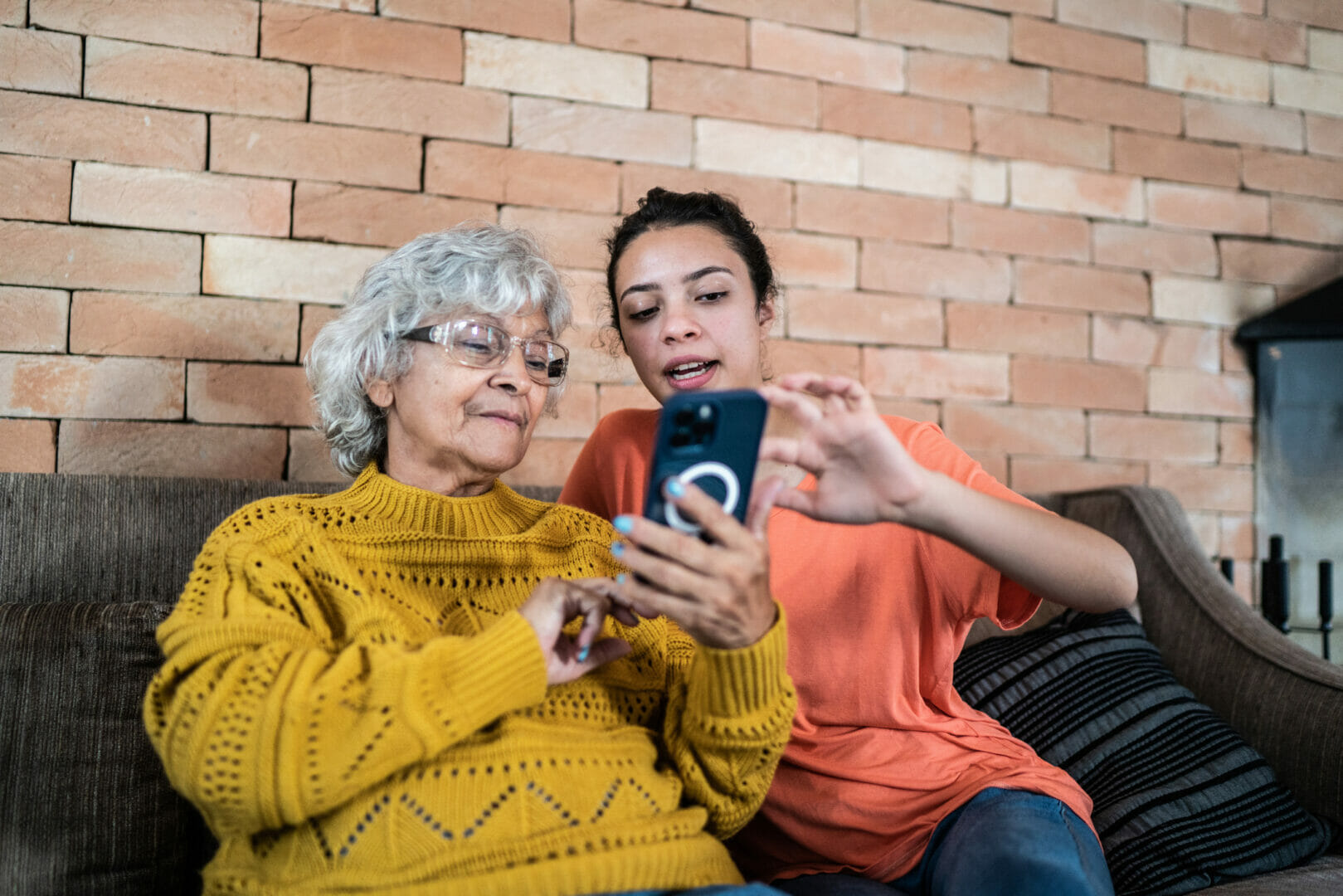Dementia poses memory challenges for individuals and caregivers. Smartphones offer memory-enhancing solutions and social connections. However, ethical considerations and limitations must also be addressed. Real-life success stories and research support smartphones' positive impact. By combining smartphones with traditional methods, we can improve the well-being of individuals with dementia and their caregivers.
Need for Effective Memory-Enhancing Strategies
Given the profound impact of memory impairment on dementia, there is a pressing need for memory-enhancing strategies that can empower individuals to lead more fulfilling lives. These strategies should focus on supporting memory recall, fostering independence, and promoting cognitive stimulation.
Traditional memory aids like sticky notes, calendars, and verbal reminders from caregivers have been employed to address memory issues. While these methods can be helpful, they may not be comprehensive enough to address the complex memory challenges that arise in dementia. This is where smartphones and their features come into play.
Smartphone Features for Memory Improvement
Accessibility and Convenience for Older Adults
Smartphones have become ubiquitous in modern society, and their user-friendly interfaces make them accessible even to older adults. These devices can be customized to suit individual preferences, making them highly versatile tools for memory enhancement. Some key features that make smartphones particularly beneficial for older adults with memory impairment include:
- Alarms and Reminders: Smartphones allow users to set personalized alarms and reminders for appointments, medication schedules, and daily tasks. These reminders can be tailored to repeat at specific intervals, ensuring important events are not overlooked.
- Voice Assistants: Voice-activated assistants like Siri, Google Assistant, or Alexa offer hands-free interaction with the phone. Users can dictate reminders, make calls, or set appointments using voice commands, reducing their reliance on manual input and navigation.
- Large Fonts and Accessibility Options: Many smartphones offer customizable display settings, including larger fonts, high contrast options, and text-to-speech capabilities, making it easier for older adults with visual or cognitive impairments to use their devices.
Memory-Enhancing Applications, Reminders, and Organization Tools
The vast array of applications available for smartphones includes several memory-enhancing tools that can greatly benefit individuals with dementia. Some of these applications include:
- Memory Games: Numerous apps offer brain-training games designed to improve memory, attention, and cognitive flexibility. Engaging in these games regularly can help stimulate the brain and potentially slow down cognitive decline.
- Note-taking Apps: Digital note-taking apps allow users to jot down important information, create to-do lists, and store essential documents in one place. This can help individuals stay organized and retrieve information more efficiently.
- Medication Management Apps: For those with dementia who need to take medication regularly, these apps can send reminders to take pills at specific times, ensuring they adhere to their prescribed treatment plan.
- GPS Navigation: GPS apps can be beneficial for older adults with dementia who may experience navigation difficulties. These apps can provide turn-by-turn directions, helping users find their way and reduce feelings of disorientation.
Cognitive Stimulation through Smartphone Activities
Brain Training Apps and Memory Games
Brain training apps and memory games have gained popularity for their potential to enhance cognitive functions. These applications typically include exercises that challenge memory, attention, problem-solving, and other cognitive skills. Users can participate in daily training sessions that adapt to their performance, ensuring continuous engagement and improvement.
These apps are particularly beneficial for older adults and individuals looking to maintain mental agility and memory sharpness. By regularly engaging in brain training activities, users can promote neuroplasticity, the brain's ability to reorganize and form new connections, leading to long-term cognitive benefits.
Language and Cognitive Skill-Building Apps
Language and cognitive skill-building apps offer an enjoyable and effective way to enhance verbal abilities and overall cognitive function. These apps often include language puzzles, vocabulary exercises, and grammar challenges that encourage users to think critically and creatively.
For older adults, engaging in language-related activities can help stave off cognitive decline and reduce the risk of developing cognitive disorders. Additionally, language learning has been linked to improved memory and attention, making these apps a valuable tool for users of all ages.
Virtual Puzzles, Quizzes, and Trivia Games
Virtual puzzles, quizzes, and trivia games provide both entertainment and cognitive stimulation. These activities promote problem-solving, critical thinking, and general knowledge, while also offering a social aspect through online competitions and multiplayer options.
The interactive nature of these games fosters engagement and motivation, and they can be especially beneficial for individuals seeking to boost memory, attention, and overall mental agility.
Personalization and Memory Support
Digital Photo Albums and Reminiscence Apps
Memories play a vital role in shaping our identities and connecting us to our past. Smartphone apps that facilitate digital photo albums and reminiscence activities allow users to relive cherished moments and share them with loved ones.
For individuals with dementia or age-related memory decline, reminiscence apps can be particularly meaningful. Nostalgic experiences can trigger positive emotions, improve mood, and promote a sense of self. These apps serve as valuable memory aids, helping users remember important life events and maintain a strong sense of personal history.
Voice Recording and Note-Taking Features
As memory challenges may arise in various situations, voice recording and note-taking features on smartphones offer practical solutions. Users can quickly capture important information, reminders, and thoughts using voice commands or typing, ensuring they don't forget crucial details.
These features are particularly useful for older adults who may experience occasional memory lapses, as they provide a convenient way to document information on-the-go, enhancing overall organization and memory recall.
Integration of Personal Reminders and Meaningful Content
One of the significant advantages of smartphones is their ability to integrate personal reminders and meaningful content. Users can set up reminders for appointments, events, and tasks, ensuring they stay on top of their schedules and responsibilities.
Additionally, smartphones can store personalized content, such as favorite quotes, poems, or affirmations, that can act as positive memory triggers. Integrating such content into daily routines can foster a sense of familiarity and comfort, promoting mental well-being.
Communication and Social Connection
Video Calls and Messaging Apps for Staying Connected
Video calls and messaging apps have revolutionized the way people communicate, enabling real-time interactions regardless of geographical barriers. For individuals with dementia who may face difficulties with face-to-face communication, these apps offer a lifeline to stay connected with family and friends.
Through video calls, individuals can see the facial expressions and gestures of their loved ones, enhancing the emotional connection. Messaging apps, on the other hand, allow for convenient and frequent communication, fostering ongoing social engagement.
Social Media Platforms for Engagement and Support
Social media platforms provide an avenue for individuals with dementia to connect with a wider social circle, including old friends, distant relatives, and support groups. These platforms offer a virtual space where users can share updates, photos, and memories, fostering a sense of belonging and reducing feelings of isolation.
Support groups specific to dementia can also be found on social media, allowing individuals with the condition and their caregivers to share experiences, seek advice, and find emotional support from those who understand their challenges.
Virtual Communities and Support Groups
In addition to social media, dedicated virtual communities and online support groups are becoming increasingly prevalent for individuals with dementia and their caregivers. These platforms offer a safe and supportive environment where participants can discuss concerns, ask questions, and exchange knowledge.
Virtual support groups can be especially beneficial for individuals who may face limitations in attending physical meetings due to mobility issues or other health concerns. They provide a sense of camaraderie and empathy, helping participants navigate the complexities of dementia care together.
Ethical Considerations and Limitations
Privacy and Security Concerns
As smartphones become integral to dementia care, the issue of privacy and security becomes paramount. Caregivers and family members must ensure that personal information and sensitive data shared on smartphones are adequately protected from unauthorized access. It is crucial to use secure apps and follow best practices, such as strong passwords and regular updates, to safeguard against potential breaches.
Furthermore, obtaining informed consent from individuals with dementia before using smartphones is essential. While smartphones can foster communication, consent ensures that users are aware of how their data and information will be used and shared.
Challenges for Individuals with Advanced Dementia
While smartphones can be beneficial for individuals with mild to moderate dementia, those in advanced stages may encounter challenges in using these devices independently. Advanced cognitive decline can hinder their ability to navigate complex interfaces and understand communication tools fully.
In such cases, caregivers need to assess the appropriateness of smartphone use and may need to take a more hands-on approach. This could involve initiating video calls on behalf of the individual or using messaging apps as a tool to maintain connections with loved ones.
Balancing Smartphone Use with Other Memory Support Methods
While smartphones offer a wide range of memory support tools, they should not replace other essential memory-enhancing strategies. Combining smartphone activities with traditional methods, such as memory aids, verbal reminders, and cognitive exercises, can provide a holistic approach to dementia care.
Maintaining a balance between smartphone use and other memory support methods ensures that individuals with dementia receive comprehensive and personalized care tailored to their unique needs.
In conclusion, smartphones offer valuable memory-enhancing solutions and social connections for individuals with dementia. While their benefits are evident, ethical considerations and limitations must be addressed. By combining smartphones with traditional methods, we can significantly improve the well-being of individuals with dementia and their caregivers. Real-life success stories and research findings reinforce the positive impact of smartphones in dementia care, highlighting their potential to enhance cognitive stimulation and social engagement. As we continue to explore and optimize smartphone applications in dementia care, we move closer to a more inclusive and supportive approach for those living with this condition.





